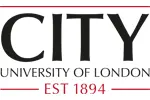We're moving! This site will be relocating to goingto.university in 2026. Please update your bookmarks to the new address.


the United Kingdom
City St George's, University of London| The award | How you will study | Study duration | Course start | Domestic course fees | International course fees |
|---|---|---|---|---|---|
| MPhil, PhD | Full-time, Part-time | 2 - 7 years | October, January, February, April | GBP 4500 per year | GBP 9600 per year |
The Department of Mechanical Engineering and Aeronautics has strong expertise in the area of Fluids Engineering and with its multidisciplinary roles has made major impact on engineering systems on land, sea, in the air and in outer space; from nano-scale project like medical implants to large-scale projects like aero-space stations.
The department welcomes research degree applications from candidates whose interests align with those of our academic staff. Currently there are more than 60 research students researching different topics at the Fluid Engineering Centre. Research students are central to research activity in the department. Our goal is to support talented individuals who wish to develop their research skills, to undertake rigorous and inspirational research and ultimately to obtain an MPhil or PhD qualification. Research students are supported in their studies through a structured programme of supervision and training.
Research can be performed in topics related to computational and experimental fluid dynamics and their applications to IC engines, compressors and turbines, various fluid machinery (injectors, pumps, propellers, fly wheels, marine systems etc), flow control, boundary layer drag reduction, supersonic flow, energy conversion systems. In the area of CFD expertise exists in the development of numerical methods and physical models for multi-phase flows and cavitation, turbulence modelling (LES and DNS), fluid-structure interaction, phase-change processes (cavitation and vaporisation), liquid sprays and combustion processes. In the area of experimental fluid dynamics expertise exists in laser diagnostics (LDV, PDA, PIV, LIF among other) and instrumentation of various sensors for recording the performance of various machines and wind tunnel testing.
These fees are for full-time studies only. If you wish to study part-time, you can find fee information on the course page.
Proof of English language proficiency is required for applicants whose first language is not English. We require a minimum IELTS overall score of 6.5 with a minimum of 6.0 in each of the four components.
Below are some suggested courses at other providers that you may also be interested in:
Preparatory Courses in English for Degree Studies (Medical, Business, Architecture and Engineering, Psychology, English and American Studies) UG:Foundation, UG:Foundation, UG:Foundation
University of Pécs
Find out moreIf you do not meet the entry requirements for this course then consider one of these postgraduate preparation courses from another institution:
There are 240 other courses listed from City St George's, University of London. A selection of these are displayed below:
Accounting and Finance (Foundation) Foundation Degree
City St George's, University of London
Find out moreActuarial Science (Foundation) Foundation Degree
City St George's, University of London
Find out moreAdult and Mental Health Nursing (pre-registration) MSc
City St George's, University of London
Find out moreJoin the StudyLink email list and never miss a chance to turn your study abroad dreams into reality!
